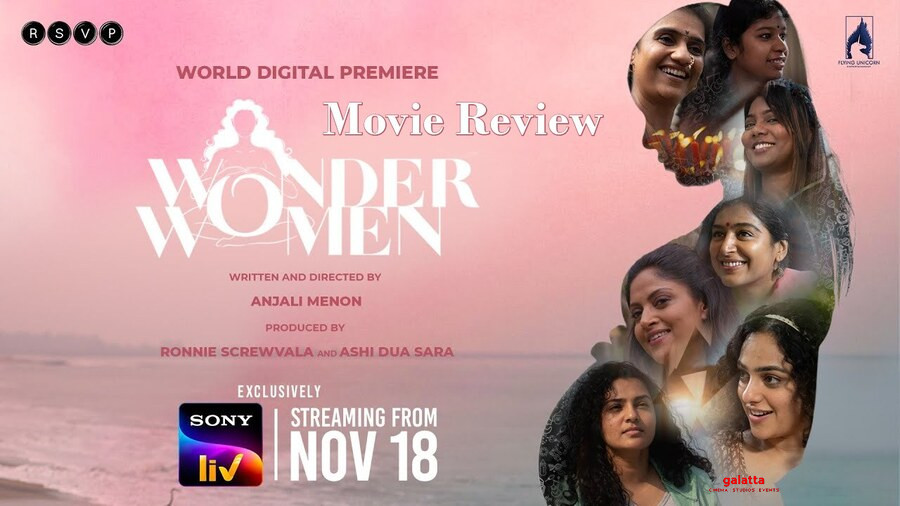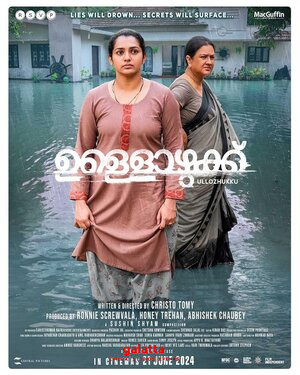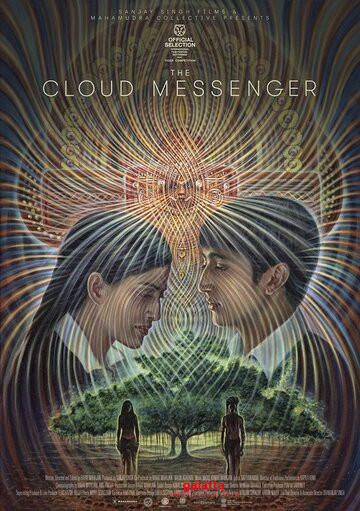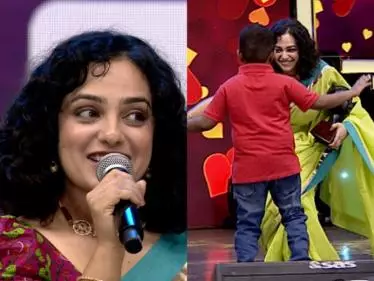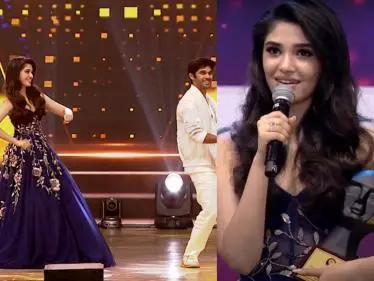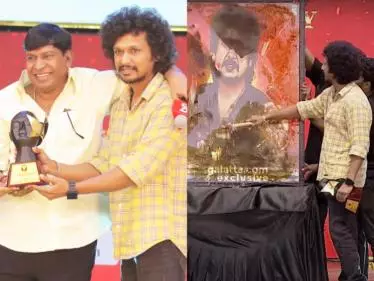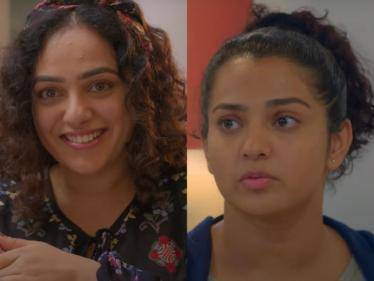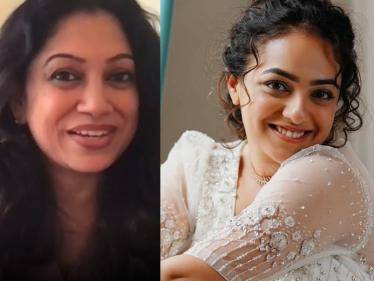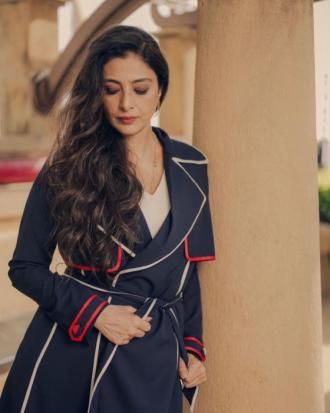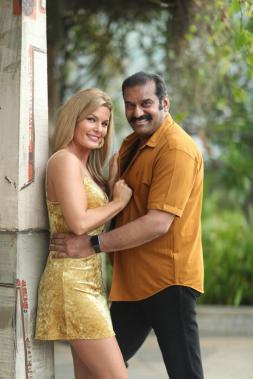Wonder Women Movie Cast & Crew
The "one line" of Anjali Menon's Wonder Women would be something like this: Six pregnant women attend a prenatal class, and experience both frictions and friendships. But the resulting film is not what that one line would suggest. In fact, I'd even hesitate calling Wonder Women a "film" – for it plays more like an extended commercial or music video. It's a mosaic of moods and thoughts and emotions. If there's one image that sums up the feel of this undertaking, it's that of a pregnant woman closing her eyes with the kind of satisfaction only binge-eating can bring. The plate in front of her is loaded with carbs. There's no dialogue, but the look on her face says it all. For at least the duration of the meal, the immense stress she's going through has melted away. You may not know much about this person, but at that moment, you know exactly what she's feeling.
The name of the prenatal centre is "Sumana", which means good-hearted – like the woman (Nadiya Moidu) who runs the facility. "Sumana" is also a flower, and indeed, the first visual we get is that of fallen flowers. They are gathered and put in a bowl, much like these scattered women are assembled in this class. They are scattered in terms of language – we hear English, Marathi, Tamil, Malayalam. These women are scattered in terms of class, in terms of relationships – some are married, some are single parents, some are unmarried couples. And they are scattered in terms of their personalities. If Veni is warm and welcoming, then Nora is instantly judgemental. Entering the space for the first time, she tells her partner over the phone: "Some weird folks are turning up."
The cast is lovely: Nadiya Moidu, Nithya Menen, Parvathy Thiruvothu, Padmapriya Janakiraman, Sayanora Philip, Archana Padmini, and a standout Amruta Subhash, who gets the biggest and best role. Just spending time with these talented ladies is going to be enough for some viewers. Sometimes, the feel is that of a group-therapy class, where people open up about issues. Sometimes, we feel we are in a motivational session, with lines like "the fear of pain is greater than the pain itself." Govind Vasantha's score is easy on the ears, and it adds to the feeling of being enveloped in a warm and cosy blanket. "Breezy" is the word that kept coming to mind.
Wonder Women made me think about Jude Anthany Joseph’s Sara’s, where we travel with the pregnant Anna Ben character. That, too, was a film that existed largely in a breezy zone. I did wish we had been taken a little deeper into the character’s headspace – but we did get a satisfying, warts-and-all picture of what pregnancy does to a multifaceted working woman and the multiple things she has to deal with. Anjali’s multi-character design does not allow us enough entry points into anyone’s headspace – in the sense that each person is painted in one or two shades, and we feel we hardly know these women. We get fascinating diversions like the effect patriarchy can have even on men. A husband admits that he was scolded for holding a doll when he was a little boy. But given the short running time (80-odd minutes), these remain just that: diversions. And for this filmmaker, they are too on-the-nose.
Anjali's strength is understatement, so an early brawl about Hindi being the national language feels extremely contrived – though it ends with an effective punch line from the Parvathy character. A conservative mother-in-law is painted in very broad strokes and her subsequent change of attitude is not convincing at all. A domestic help is part of this group, and I wondered how she (or the very middle-class Amruta Subhash character) could afford this class. And given the emphasis on equality, it's odd to see this domestic help continuing to serve drinks and payasam to others. The small sidebar about a woman and a little boy or the reunion of a character with her family feel far too melodramatic for this milieu. One part of me felt adrift. I wanted to feel as connected to these characters as they seem to each other. Another part of me felt that Wonder Women is basically an exercise in form, which removes conventions like "character arcs" and reduces people to their barest essentials.
Wonder Women, then, is best enjoyed as an experiment in narrative technique. We are given dots and asked to connect them. When the Nithya Menen character says she does not have a good relationship with her mother, you can see why this baby inside her has become her everything. Her partner complains that she does not care about her work anymore, but you can see why: because she does not want to be the mother her mother was. The Parvathy character likes to take pictures, implying that she likes observing and controlling life rather than participating in it. The Padmapriya character is presented with far less finesse, but you feel happy for her when she expresses her happiness at finding pregnant friends. The climax is a big one, a demonstration of "it takes a village to raise a child". Everyone rallies around. But my favourite touch was that we leave Wonder Women with an image of these wonder women, and not that of newborn babies. The pregnancies are just a device to stress the importance of sisterhood.
